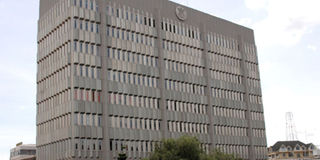BoU let down Uganda on defunct Crane Bank

Bank Of Uganda
What you need to know:
- The issue: BoU inaction
- Our view: We demand a review and, where necessary, a reprimand of those culpable for the omissions and commissions. BoU should take immediate measures to prevent recurrence.
A litany of alleged internal malfeasance that last year culminated in Crane Bank going burst will now be decided by court.
This is such an unprecedented litigation in which the Central Bank, as the overseer of the country’s financial sector, is through the defunct Crane Bank, seeking recovery of billions of shillings from the latter’s owner Sudhir Ruparelia.
Mr Ruparelia has for long been a multi-sector investor, a respected name and real estate mogul. Documents filed at the Commercial Court now show he expropriated the bank he owned of its property to enrich himself through his other businesses, engaged in illegal insider trading and breached financial rules that eventually took down Crane Bank.
A new Bank of Uganda-authorised forensic audit found that Shs52b deducted as staff contribution was not remitted to the National Social Security Fund. The workers’ Fund never detected this anomaly!
We are startled by the systematic institutional failure that midwifed Crane Bank’s collapse.
How could the Central Bank have failed over half-a-decade to spot pervasive perfidy at Crane Bank then headquartered literally across the road from its own head office?
The Supervision Acts and Regulations as well as the government’s 1997 Intervention Policy empower Bank of Uganda, according to information on its website, to “conduct full on-site examination of all commercial banks using a risk-based supervision methodology”.
To do this and since 2004, the Central Bank deployed the Bank Supervision Application (BSA). Still from 2010 onward, it publicly gave Crane Bank a clean bill of health that kept it in operation, its hazardous practices in the dark and dapper for unsuspecting new customers.
We are not persuaded that Bank of Uganda was entirely unaware of these reported indiscretions. As such, it is our considered view that its delayed action was a betrayal of public trust, constituted incompetence and bordered on complicity. Why? The amended Financial Institutions Act 2004 obliges it to take “various mandatory prompt corrective actions to correct weaknesses in the financial institutions before they escalate to unacceptable levels”.
We are alarmed that the Central Bank did not fulfil this core mandate until the malfeasance incubated at Crane Bank morphed to apocalyptic proportions to infect and corrode the country’s entire financial system.
We demand a review and, where necessary, a reprimand of those culpable for the omissions and commissions. BoU should take immediate measures to prevent the 24 commercial banks, four credit institutions, 46 forex bureaux, five micro-finance deposit-taking institutions and dozens of money remitters from engaging in dubious deals unearthed at the Crane Bank.




